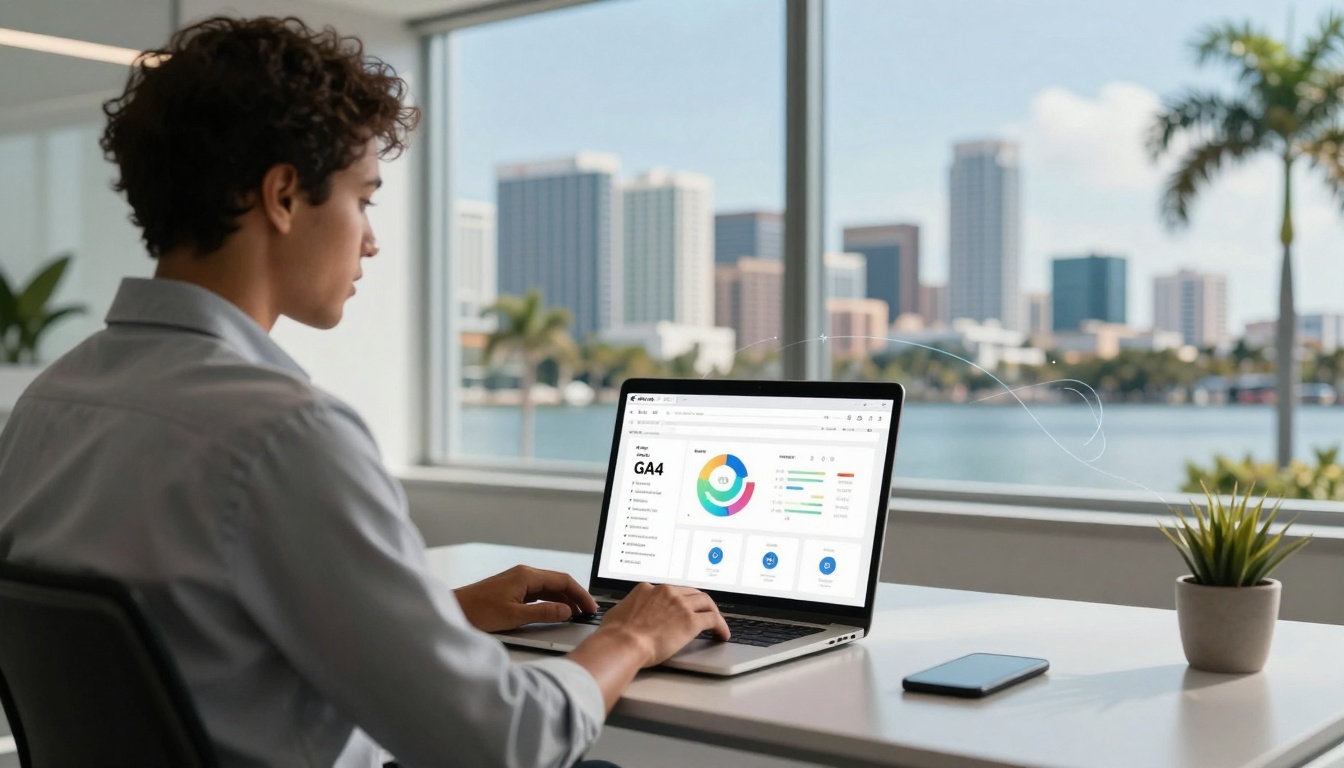How SEO Is Changing in 2025: Essential Trends and Strategies
How SEO Is Changing in 2025: Essential Trends and Strategies
1. Introduction
As we move into 2025, the question on everyone’s mind is "how SEO is changing in 2025." The digital landscape is evolving at a breakneck pace, and businesses need to adapt or risk falling behind. Search engine optimization (SEO) is no longer just about keywords and backlinks; it’s about understanding user behavior, leveraging AI, and staying ahead of emerging trends.
This transformation is reshaping how brands connect with their audiences online. For marketers and business owners, mastering these changes isn’t optional—it’s essential for maintaining visibility and driving growth. Fortunately, companies like Yeppymarketing.com are leading the charge by offering cutting-edge solutions tailored to the demands of modern SEO.
2. The Rise of Generative AI: Beyond Google
Generative AI platforms like ChatGPT, Perplexity, Claude, and Gemini are revolutionizing how users find information. These tools are not just search engines but intelligent assistants that provide direct answers, reducing reliance on traditional platforms like Google. As a result, brands must rethink their strategies to ensure they remain visible across multiple AI-driven ecosystems.
For businesses aiming to capture relevant traffic, being present on these platforms is now as critical as ranking high on Google. This shift highlights the importance of optimizing content for AI engines, ensuring your brand remains discoverable wherever your audience seeks answers.
3. User-Focused Optimization Over Keyword Matching
The days of stuffing pages with exact-match keywords are long gone. In 2025, successful SEO hinges on understanding user intent and delivering meaningful experiences. AI algorithms have become adept at interpreting natural language, meaning your content needs to address what users truly want—not just what they type into a search bar.
This emphasis on context over keywords means brands must create content that resonates emotionally and solves real problems. By focusing on human-centered design, you can build trust and loyalty while improving your rankings organically.
4. The Explosion of Experiential and Expert Content
Content that showcases expertise and delivers tangible value is king in 2025. Audiences crave authenticity, which is why businesses are increasingly turning to internal experts, customer testimonials, and influencer collaborations to bolster credibility. This trend reflects a broader demand for trustworthy, authoritative sources.
By investing in experiential content—such as case studies, interactive guides, and video tutorials—brands can differentiate themselves from competitors. Not only does this approach enhance engagement, but it also establishes lasting connections with users who value transparency and knowledge.
5. AI-Driven Content Creation: Opportunities and Pitfalls
AI has made content creation faster and more scalable than ever before. Tools powered by machine learning can generate articles, social media posts, and even product descriptions tailored to specific audiences. However, relying solely on AI comes with risks, including generic output that lacks depth or originality.
To strike the right balance, businesses should use AI as a tool rather than a replacement for human creativity. Human oversight ensures that content remains insightful, accurate, and aligned with brand values—a combination that machines alone cannot replicate.
6. Evolving Search Behaviors: Conversational and Hyperlocal Trends
Voice search and conversational queries are becoming dominant forces in how people interact with technology. Users expect immediate, personalized responses, whether they’re asking Siri for restaurant recommendations or seeking local services via Google Assistant. This shift underscores the growing importance of hyperlocal SEO.
Brands that optimize for conversational language and geotargeted keywords will gain a competitive edge. By aligning your strategy with these behaviors, you can position yourself as the go-to solution for users searching nearby or seeking quick answers.
7. Alternative Traffic Sources: Answer Engines and Beyond
Answer engines and recommendation platforms are emerging as powerful alternatives to traditional search engines. These systems curate content based on relevance and authority, often bypassing conventional rankings altogether. For businesses, this represents an untapped opportunity to drive traffic through non-traditional channels.
Optimizing for answer engines involves creating concise, structured content that directly addresses common questions. By focusing on clarity and expertise, you increase the likelihood of appearing in curated results, expanding your reach beyond standard search methods.
8. Integration With Broader Marketing Efforts
In 2025, SEO doesn’t operate in isolation—it’s part of a larger ecosystem that includes social media, PR, and influencer marketing. Successful campaigns require seamless integration across all digital touchpoints to maximize visibility and impact. Brands that silo their efforts miss out on valuable synergies.
For example, sharing expert-authored blog posts on LinkedIn or partnering with influencers to amplify key messages can boost both SEO and overall brand awareness. Coordinated strategies ensure consistency and reinforce your message across multiple platforms.
9. The End of Traditional SEO Tactics
Gone are the days when keyword stuffing and link farming could guarantee top rankings. Modern search engines prioritize user behavior metrics like dwell time, click-through rates, and engagement levels. Brands that fail to adapt risk losing ground to competitors who embrace these new signals.
Instead of chasing outdated tactics, focus on creating compelling, high-quality content that encourages interaction. Prioritizing user satisfaction not only improves SEO performance but also fosters long-term relationships with your audience.
10. The Impact of Google's API Leaks and Antitrust Investigations
Recent revelations from Google’s API leaks and antitrust investigations shed light on the inner workings of its algorithm. It’s clear that user interactions—such as clicks, shares, and time spent on page—play a pivotal role in determining rankings. These insights underscore the need for holistic optimization strategies.
Businesses should view these developments as an opportunity to refine their approach. By prioritizing engagement and crafting content that resonates deeply, you can align with Google’s evolving standards and secure better visibility.
11. Preparing for the Future: Actionable Steps for 2025 and Beyond
Future-proofing your SEO strategy starts with embracing innovation. Invest in AI tools to streamline workflows, conduct thorough audience research to understand shifting preferences, and experiment with new formats like video and interactive content. Staying adaptable is crucial in navigating rapid industry changes.
Additionally, partner with experts who specialize in navigating the complexities of modern SEO. At Yeppymarketing.com, we help businesses stay ahead of the curve by implementing data-driven strategies designed for 2025’s unique challenges.
12. Frequently Asked Questions
1. How is AI changing SEO in 2025?
AI is transforming SEO by powering smarter search algorithms and enabling brands to optimize for AI-driven platforms. To succeed, businesses must focus on creating engaging, contextually relevant content that aligns with these advanced technologies.
2. Is traditional keyword research still relevant?
While traditional keyword research remains useful, its role has shifted toward uncovering user intent. Understanding why someone searches for a term—and how they phrase it—is far more valuable than targeting isolated keywords.
3. How can my business appear in answer engines and AI tools?
To rank in answer engines, structure your content clearly and include schema markup to make it easier for AI to parse. Providing authoritative, well-researched answers to frequently asked questions also boosts your chances of selection.
4. What is the role of content expertise in SEO now?
Expertise is paramount in today’s SEO landscape. High-quality, credible content builds trust with both users and search engines, making it a cornerstone of effective optimization strategies.
5. How should I adapt my SEO strategy for 2025?
Prioritize user experience, leverage AI tools for efficiency, and stay attuned to emerging trends like voice search and hyperlocal targeting. Above all, maintain a commitment to producing authentic, valuable content.
13. Conclusion
The SEO landscape of 2025 is defined by constant evolution, driven by advancements in AI, shifting user behaviors, and integrated marketing approaches. Brands that embrace these changes will thrive, while those clinging to outdated methods risk obsolescence. The key lies in staying agile and continuously refining your strategies.
Now is the time to take action. Partner with Yeppymarketing.com to navigate the complexities of modern SEO and position your business for success. By combining expert guidance with innovative techniques, we’ll help you dominate the digital space in 2025 and beyond.
Featured Resources



